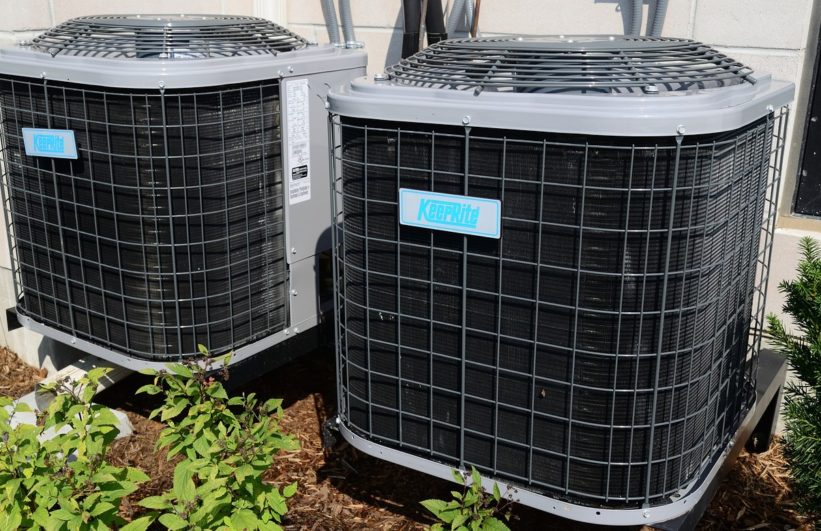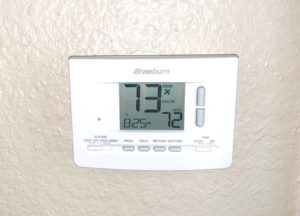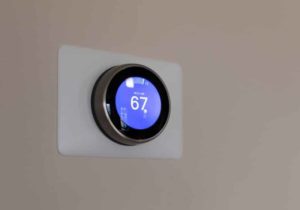As the days get hotter, your air conditioner will start getting used more and more. One of the scariest things during this time is seeing water leaking from it. Leaks are one of the most common issues faced by air conditioners. The good news is that many of the causes can be easily fixed, and many of the fixes are affordable. It’s important, however, that you fix a leaky air conditioner as soon as you notice the problem. There are a few different reasons why your air conditioner might be leaking water. Here are a few of those reasons.
Your A/C Filter is Dirty
The A/C filter is what filters out particles, allergens, and other debris from the air. Dirty, clogged air filters restrict airflow, which can cause the evaporator coils to freeze. Ice forms on the coils and eventually begins to melt. The excess water drips into the condensate pan, which can cause it to overflow. When your evaporator coils freeze, the refrigerant can’t take in warm air anymore. This can lead to warm air blowing, or no air blowing at all. These issues can cause severe problems for your compressor. Your air conditioner’s filter should be replaced at least every three months to prevent it from restricting air flow.
The Condensate Line is Blocked or Cracked
The drain pan is what catches dripping condensation. The condensate line is what directs the water in the pan out. Sometimes, the pan can rust or crack. This may happen if your air conditioner is on the older side. When this issue occurs, water can leak. If the pan is clear, it could be that the condensate line is blocked or cracked. The line can become blocked due to dirt, rust, or other debris. Water can back up and cause the drain pan to overflow. Cracks allow water to escape as it travels through the drain pipes, forming puddles.
You’re Low on Refrigerant
The refrigerant in your air conditioner draws in warm air. If your refrigerant level gets too low, the pressure inside of your air conditioner will be lower. Without enough refrigerant, your air conditioner won’t be able to cool as effectively. It can also lead to freezing evaporator coils. Again, the ice on the frozen coils will eventually freeze and drip, which can cause the condensate pan to overflow.
Your Air Conditioner was Installed Improperly
For your air conditioner to function correctly, it needs to be installed properly. Improper installation can cause many issues, including leaking. If your air conditioner is brand-new and you’re experiencing issues with leaking, it could be that it just wasn’t installed correctly. Leaking in a brand-new air conditioner could also occur because your air conditioner isn’t the right size for your home.
The Air Conditioner Isn’t Sealed Correctly
Sealing the air conditioner properly from the outside is very important. If the unit isn’t correctly sealed, warm air can get in. Condensation can then form as the warm air mixes with the cooler air generated by the unit. All of this condensation will eventually build up and leak out of the air conditioner. In addition to causing leaks, an improperly sealed air conditioner can make your air conditioner have to work harder. When it’s working harder, you’re spending more on energy bills and your air conditioner may wear out faster.
Cooler Outdoor Temperatures
While the temperatures might be quite high during the day, pay attention to the evening temperatures, particularly in the late summer and early fall. When the temperatures begin to fall below 60° F, and you’re still running your air conditioner, the evaporator coils can freeze. When the coils start to thaw, the ice begins to melt and drip into the condensate pan. This excess water can cause the pan to overflow, which causes your leak. Avoid running your air conditioner when the weather drops into the low 60s and below to help avoid this problem from developing.
Final Thoughts
If you notice your air conditioner leaking, it’s vital that you address the issue as quickly as possible. While it might be nothing serious, it could prevent more serious problems down the line. The sooner you solve the issue, the easier it is to fix, and the less likely you’ll be paying for expensive repairs during the hottest days of summer.




